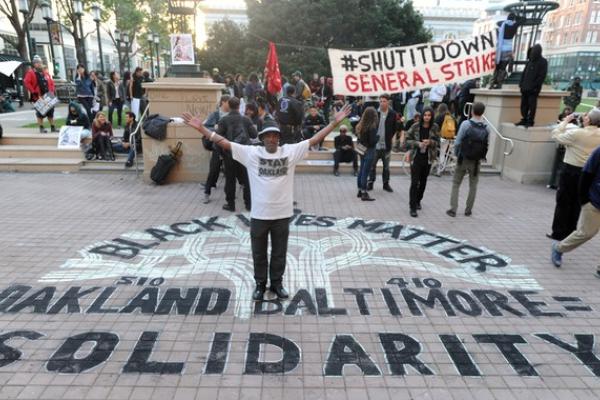
September 23, 2015
All Day
http://carmenconnect.osu.edu/globaled/
Join us for an a conversation in a virtual conference room on teaching about race in and outside of the U.S. We are inviting colleagues from across campus, and around the world to participate. Local and global Muslim and Middle Eastern identities will be covered briefly, their long-standing stereotypes in American and global culture, followed by a conversation on the post-9/11 targeting them and those who are perceived to be from these groups. We are targeting critical global educators, and welcome stories related to teaching about racism across national borders. There has been a lot in the news and social media about racism in the U.S., and at at the same time the need for national security - we believe there is a middle way which allows useful discussion about these concerns.
Background information:
Recently, the Center sent out a request for faculty participation in a seminar on social movements in the U.S. for recently-arrived Fulbright scholars from Afghanistan. This would be the first foray into authentic American culture for many, if not all, of them. We were stimulated by the reversal of our normal curriculum: teaching about U.S. culture to an audience from the Middle East, rather than teaching about the Middle East to a U.S. audience. The theme was designated by the granting agency, Institute of International Education. It was to be "Social Movements in the U.S." Race was a central feature in our program because of its salience in U.S. society, the need to address headlines about race in the U.S. and movements such as #blacklivesmatter, and the rich history of Ohio in relation to social justice movements for African Americans.
The call for scholars on social movements and especially racial justice seemed to generate a lot of interest. Sadly, however, we did not get the grant which sparked many potential conversations. However, what it unearthed were memories of teaching about U.S. culture to people in the Middle East, and at the same time, preparing U.S. students about to go abroad for the idea and experience of race in the Middle East, and how the U.S. experience may or may not translate in the new context. We believe these would be valuable conversations, and invite you to share your experience teaching, learning or experiencing these issues. Another issue we feel that is pressing is the post-September 11th racial category of "Muslim-looking other". We co-hosted Valarie Kaur with the Multicultural Center when she came here to speak on that subject from a Sikh perspective.
We are hosting this conversation online in order to include as many different geographical locations as possible. Please see information on how to join the video conference space below. Or, you can call in by telephone: 720-279-0026
Video/audio virtual conference space: http://carmenconnect.osu.edu/globaled/
This space is designated for a learning group meeting about once month do discuss what occurs in particular when we introduce critical global content to our classes or programs. Global material (as opposed to multicultural), provides views on colonization and global patterns of oppression, while multicultural material affirms the perspectives of non-dominant groups. Both take critical stances drawn from the histories of oppressed groups, but in different ways. Thus, both areas of education are discussed, while also the importance of distinguishing between the two and their unique purposes is maintained. As the facilitator, I may pull conversations toward global education, as that is my interest, but I invite participants to choose topics and share regarding multicultural education, literacy, and other topics related to learning substantive cultural knowledge, and the pitfalls when trying to teach that knowledge. The pedagogy for this learning group embraces processes which widen the circle for differing viewpoints, allows individuals to express or not express as they feel comfortable, and invites truth about oppression from multiple standpoints. We will also learn about the place of online discussion in critical global education as we reflect on our use of it.
call-in: 720-279-0026
This conversation is part of the Cross-cultural Inclusive Teaching, Learning and Communication Group.
As technology expands the scope of our learning environments, they become more global. At the same time, the efforts for inclusive teaching practices continue to fall short in the U.S. and around the world. Educators are invited to share knowledge about communication, teaching and learning across cultural boundaries, both local and global. Multiple social, cultural, economic identities may be addressed, both in terms of the perspectives included in teaching materials, and the individuals participating in your courses, programs or other educational outreach work. Possible topics include:
* Crossing the cultural boundaries of communities - culturally diverse participants in our educational activities.
* Crossing the cultural boundaries of knowledge - diverse knowledge bases around the world, diverse languages and means of expression.
* Social dynamics of oppression in these activities - including multiple perspectives, and acknowledging the different perspectives brought to the learning.
